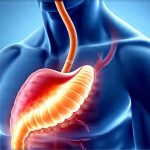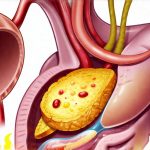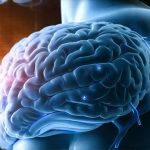Chewing gum is one of those ubiquitous habits many people engage in without much thought. From freshening breath to potentially aiding concentration, it seems harmless enough. However, for individuals prone to digestive discomfort – whether experiencing bloating, gas, IBS symptoms, or acid reflux – the seemingly innocuous act of chewing gum can sometimes exacerbate these issues, leading to questions about why this happens and what steps can be taken to manage it. The relationship between gum chewing and digestion is surprisingly complex, involving a cascade of physiological responses that extend far beyond simply mechanically breaking down food. It’s not always about the gum itself, but rather how our bodies react to the act of chewing and the ingredients commonly found in modern gums.
Understanding this connection requires delving into the digestive process and recognizing how seemingly small changes – like increased saliva production or swallowing excess air – can disrupt it. Many people assume that gum simply “stays” in your system for seven years, a myth debunked long ago, but that doesn’t mean its impact is negligible. The body does digest gum, albeit slowly, and the process of chewing itself triggers a series of events that can contribute to digestive upset for susceptible individuals. This article will explore the ways chewing gum impacts your digestive system, focusing on how it may worsen existing discomfort and what modifications you might consider if experiencing these effects.
The Physiology of Chewing & Its Impact on Digestion
Chewing gum immediately initiates a cephalic phase of digestion – essentially preparing your body for food even before any actually enters your mouth. This involves increased production of saliva, gastric acid, and digestive enzymes. While this is generally beneficial when anticipating a meal, it can be problematic when no food follows. The surge in stomach acid without anything to digest can lead to feelings of discomfort, heartburn, or even worsen existing reflux symptoms. – Increased saliva helps neutralize acids initially but doesn’t eliminate the problem entirely. – Gastric acid production spikes, potentially irritating an empty stomach. – Digestive enzymes are released in anticipation of food breakdown, becoming ‘wasted’ energy if no meal arrives.
Furthermore, chewing gum encourages aerophagia – the swallowing of excess air. This is often unnoticed but contributes significantly to bloating and gas. The act of chewing itself creates a vacuum within the mouth, drawing in more air than usual. Swallowing this extra air then leads to distension of the intestines, resulting in uncomfortable symptoms. Some gums also contain artificial sweeteners like sorbitol or xylitol, which are poorly absorbed by the small intestine. This malabsorption can lead to osmotic diarrhea – where undigested sugars draw water into the colon, causing loose stools and further digestive upset. The combination of increased air swallowing, gastric acid production, and potential osmotic effects makes chewing gum a surprisingly potent trigger for digestive discomfort in many individuals. How to decode your body’s digestive signals can help you understand these reactions better.
Finally, it’s important to recognize that the physical act of chewing itself can sometimes contribute to jaw fatigue or even temporomandibular joint (TMJ) disorder symptoms. While not directly related to gut health, chronic jaw pain and tension can indirectly influence stress levels and potentially exacerbate digestive issues as stress is well-known to disrupt the gastrointestinal system.
How Gum Affects Specific Digestive Conditions
For individuals already diagnosed with specific digestive conditions, chewing gum’s effects are often amplified. Those suffering from Irritable Bowel Syndrome (IBS), for example, are particularly sensitive to changes in gut motility and gas production. Chewing gum can exacerbate IBS symptoms like bloating, cramping, and altered bowel habits due to the increased air swallowing and potential osmotic effects of artificial sweeteners. – Bloating is a common complaint among IBS sufferers and is often worsened by excess air. – Cramping can be triggered by changes in gut motility caused by the cephalic phase of digestion. How to tell if your bloating is lymphatic or digestive may help determine the cause of these symptoms.
Individuals with Gastroesophageal Reflux Disease (GERD) may also find chewing gum problematic. The increased gastric acid production stimulated by chewing can worsen heartburn and reflux symptoms, especially if the lower esophageal sphincter isn’t functioning optimally. – Acid reflux is a hallmark symptom of GERD and can be exacerbated by increased stomach acidity. – Avoiding gum can be part of a broader strategy to manage GERD symptoms, including dietary changes and medication (as prescribed by a doctor).
Finally, people with functional dyspepsia – characterized by chronic indigestion without an identifiable organic cause – often experience heightened visceral sensitivity. This means they are more likely to perceive normal digestive processes as painful or uncomfortable. In such cases, even the mild increase in gas production from chewing gum can trigger significant symptoms of bloating and discomfort. It’s vital to remember that these are generalizations; individual responses vary greatly. If you’re struggling with chronic issues, how to talk to your doctor about digestive issues can be a helpful resource.
Identifying Gum-Related Digestive Issues & Potential Solutions
Determining whether chewing gum is contributing to your digestive discomfort requires careful observation and potentially some experimentation. Start by keeping a food diary, noting when you chew gum and any associated symptoms. Pay attention to the timing of symptoms relative to gum chewing – do they appear shortly after or are there delays? – Track both gum consumption and symptom severity in your diary. – Look for patterns that suggest a correlation between chewing gum and digestive upset.
If you suspect gum is a trigger, try eliminating it from your diet for a period of time (e.g., two weeks) to see if your symptoms improve. If they do, reintroduce gum slowly and observe whether the symptoms return. If they do, consider switching to sugar-free gums with different sweeteners or reducing the amount of time you chew. – Elimination diets can be a useful tool for identifying food sensitivities and triggers. – Start with small adjustments to minimize disruption. How dental health affects chewing also plays a role in the digestive process, so consider that too.
There are also alternative strategies for freshening breath or managing oral fixation that don’t involve chewing gum. Consider sugar-free mints, drinking water frequently, or practicing mindfulness techniques to address underlying urges. For some individuals, addressing stress levels can also help alleviate digestive discomfort and reduce the reliance on habitual behaviors like gum chewing. How to cope when no one understands if you feel isolated in your struggle with digestion. Ultimately, understanding your body’s unique responses is key to managing digestive health effectively.
Minimizing Digestive Discomfort: Gum Choices & Habits
If you aren’t ready to eliminate gum entirely but suspect it’s contributing to your symptoms, consider making more informed choices about the type of gum you chew and how you use it. Opt for gums sweetened with natural sweeteners like stevia or erythritol, which are less likely to cause osmotic effects than sorbitol or xylitol. – Read ingredient labels carefully before purchasing gum. – Look for options that minimize artificial additives and sugar alcohols.
Limit the duration of chewing sessions. Shorter chewing periods reduce the amount of air swallowed and the stimulation of gastric acid production. Avoid chewing gum on an empty stomach, as this increases the likelihood of acid reflux symptoms. Chewing gum after a meal can actually aid digestion for some individuals by stimulating saliva flow, but only if you don’t experience discomfort. – Timing is crucial; chew gum with or shortly after meals rather than between them. How to adjust your diet during travel can also help you minimize digestive upset while on the go.
Finally, be mindful of your overall digestive health and consult with a healthcare professional if symptoms persist or worsen. They can help identify underlying causes of your discomfort and recommend appropriate treatment strategies. It’s essential to remember that what works for one person may not work for another, so finding a personalized approach is key to managing digestive health effectively and enjoying a comfortable life. How to travel without triggering your symptoms can also be helpful when planning trips.


















